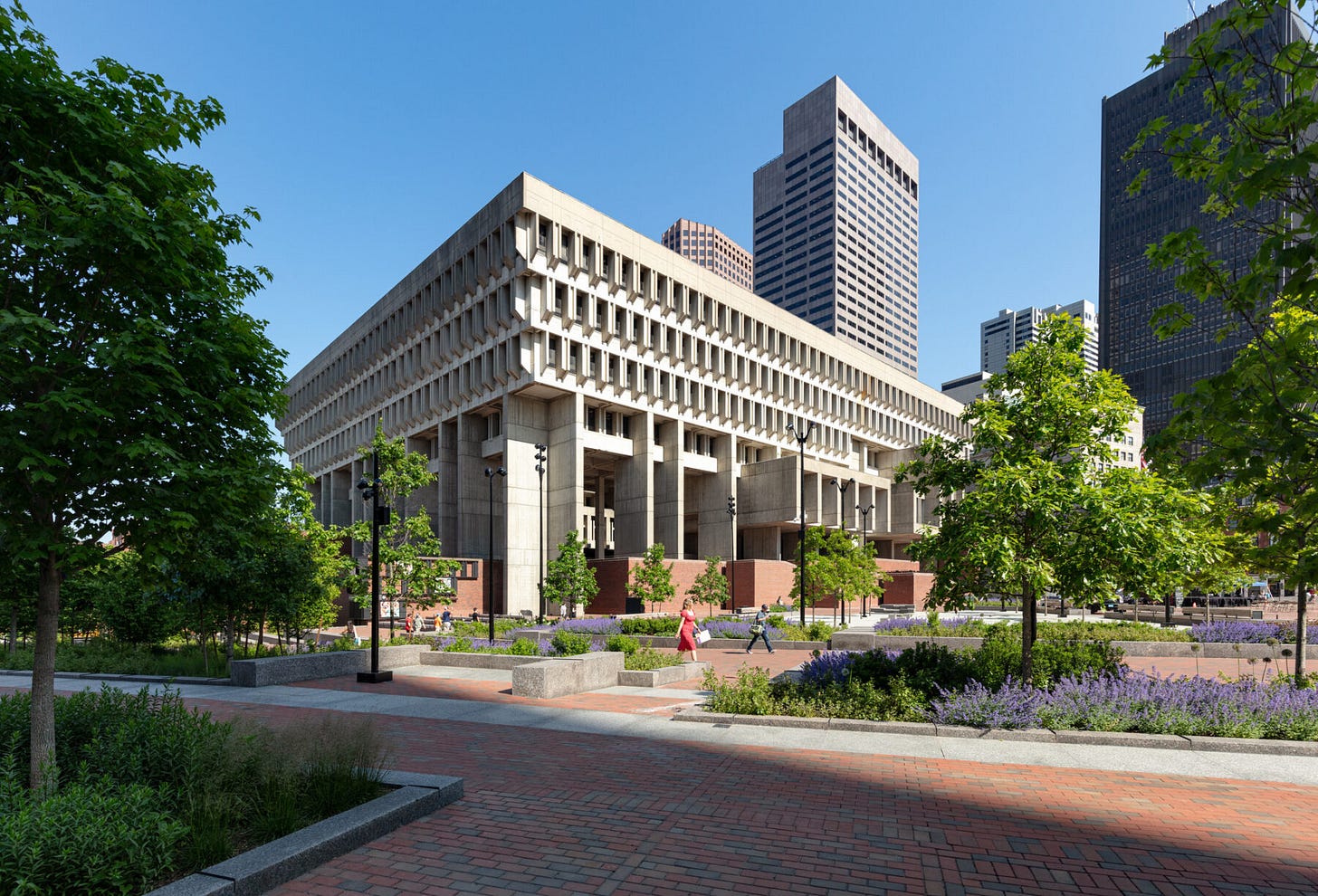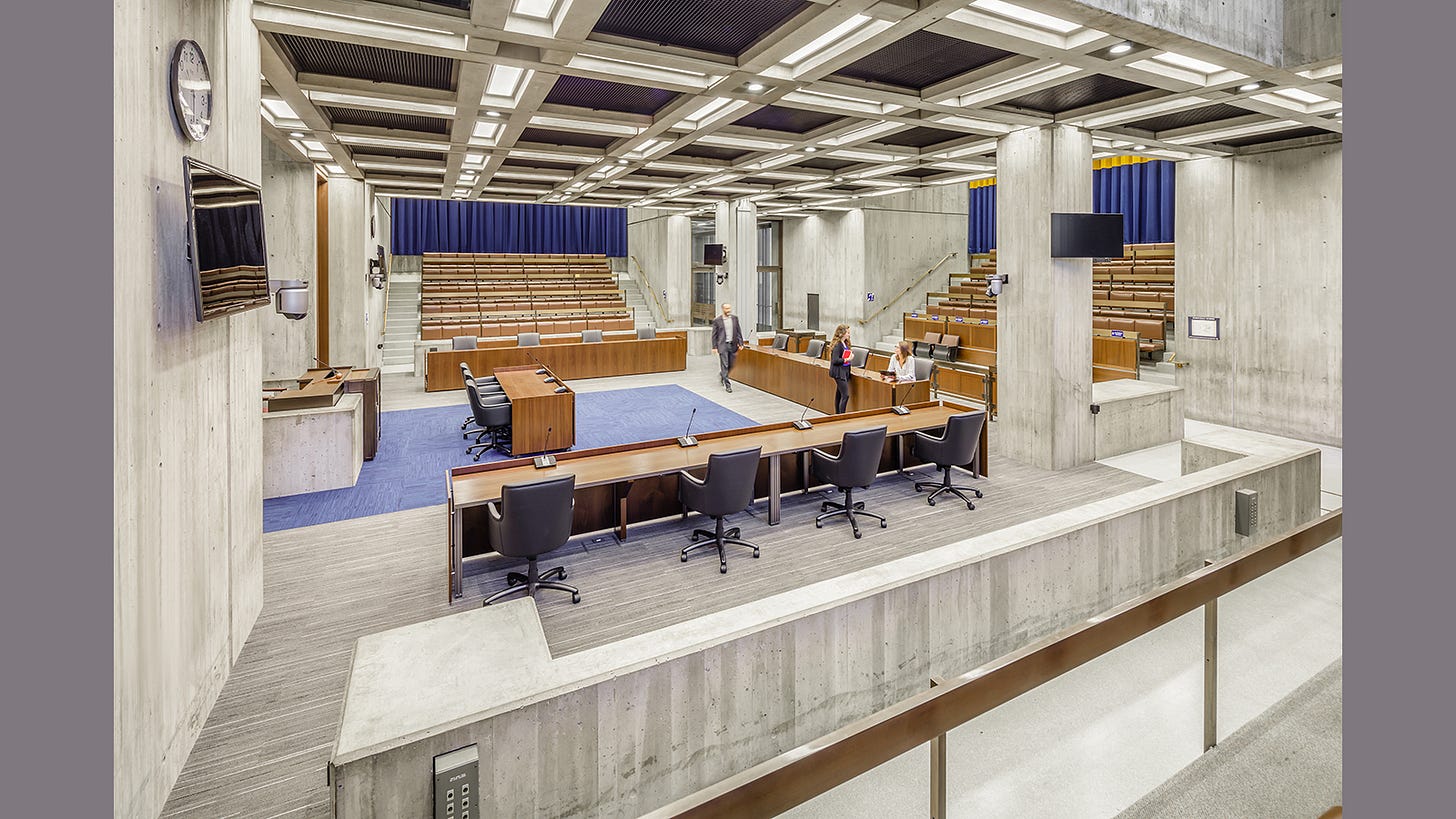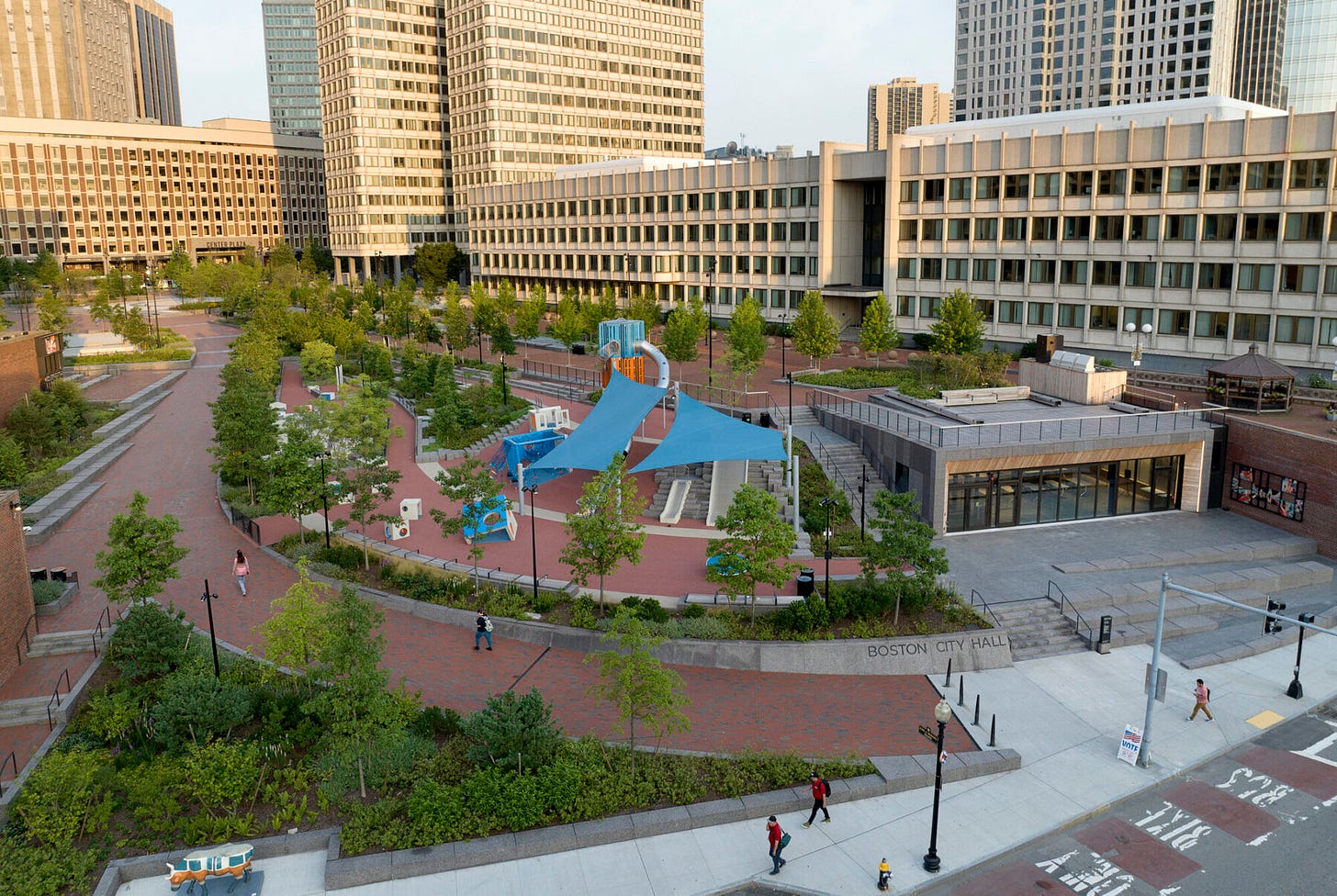Let's Landmark City Hall Without Delay!
Hoped to share exciting news about the next step in officially landmarking of Boston City Hall, instead was met with a roadblock at today's meeting
Boston City Hall is more than a government building. Completed in 1968, it is a bold example of Brutalist architecture, celebrated for its historical and cultural significance. As the Chair of the Council’s Committee on Planning, Development and Transportation, I oversee and move forward designations made by the Landmarks Commission. Yet, at today’s Council meeting, after years of careful study and advocacy by the Landmarks Commission, Disabilities Commission, and Property Management, a crucial vote to designate it as a Boston Landmark was blocked in a surprising and confusing turn of events.
This delay undermines years of diligent work and thoughtful planning. The comprehensive study report prepared for this designation goes beyond architectural accolades—it incorporates thoughtful measures to ensure accessibility for all, proving that preservation and inclusivity can coexist. The Disabilities Commission, in particular, played a critical role in crafting these provisions. Their endorsement underscores the landmarking’s alignment with accessibility laws and the goal of creating an inclusive, historically preserved space.
City Hall’s proposed landmark status includes protections for key elements like the exterior envelope, the iconic brick paving that transitions seamlessly from the plaza to the interior, the ceremonial stairs, and significant public spaces such as the Mayor’s Office and the City Council Chamber.
Unfortunately, at the most recent meeting, one of my council colleagues, Ed Flynn, opposed a vote on the designation—seemingly without even reading the study report. This decision is reckless from a preservation standpoint and dismissive of the efforts by experts and advocates who have worked tirelessly to ensure that the landmarking process included necessary City departments who advocate for all Bostonians. This objection also runs counter to the detailed guidelines in the report, which explicitly prioritize accessibility alongside preservation (Section 2.5.14), which outlines:
Accessibility modifications are designed to provide the highest level of access with minimal impact on character-defining features.
A rigorous three-step approach ensures accessibility measures respect the building’s historical significance.
Each modification is reviewed on a case-by-case basis to balance access and preservation effectively.
Given these guidelines, the notion that landmarking City Hall would hinder accessibility is simply unfounded. In fact, the landmark designation would guarantee that accessibility remains central to the building’s future use, overseen with care and accountability. Also, take a look at the newly renovated City Hall chamber, which then-Council President Michelle Wu presided over transformation of, which would be part of the Landmark designation. It’s clear that our City Council, Mayor and Landmarks Commission is dedicated to accessibility AND preservation, which can and should co-exist.
Another example of this thoughtful preservation and transformation is present in the design for accessible City Hall Plaza, which thanks Commissioner Eamon Shelton, Chief Dion Irish, and countless others who oversaw this investment created the first accessible front door to our municipal government.
Every day, I walk through City Hall in awe of its significance. This building is not just where I work; it’s a place where democracy lives, where countless civil servants have shaped our city, and where Boston’s history is written daily. Calls to tear it down over the years have thankfully been resisted, and now we have the opportunity to ensure its preservation for generations to come.
This summer, Boston will host the American Conference on Architecture and Design, where the historical and architectural importance of City Hall will be celebrated on a national stage. Let us not approach this moment with hesitation but with pride. We must recognize that this building, like our city itself, embodies resilience, innovation, and inclusivity.
I will be pulling this matter to a vote at the next opportunity. Boston City Hall deserves the protections of landmark status, and the people of Boston deserve a City Hall that is both historically preserved and accessible to all. It is time to honor the work of our commissions, respect the voices of advocates, and secure the legacy of this iconic building.
Let’s landmark City Hall without delay and show the nation that Boston leads with vision and values!
Sharon Durkan is the Chair of the Boston City Council’s Committee on Planning, Development and Transportation, and the City Councilor for District 8.







As an Architect, I revere Boston City Hall as a Masterpiece. As a citizen, I enjoy the the civic generosity of its service.
It is already a Landmark. It should be designated so by the City which it graces.
Why not relocate City Hall to a more central spot in the city at a more reasonable size based on the number of employees on site? The land under City Hall and its periphery would be an amazing new residential neighborhood.